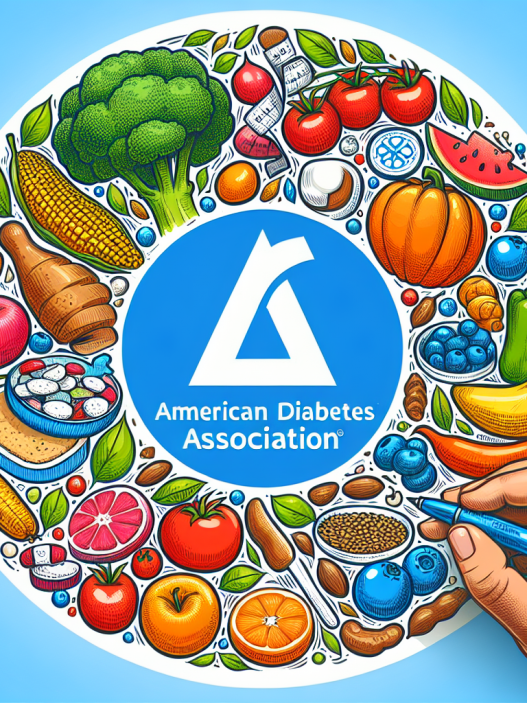[ad_1]
Living with diabetes can present various challenges, but the good news is that support and resources are readily available. The American Diabetes Association (ADA) offers a wealth of information, tools, and avenues for community connection aimed at helping individuals manage their condition effectively. This comprehensive guide explores invaluable ADA resources that empower those living with diabetes to lead fulfilling, healthy lives.
Understanding Diabetes: Types, Symptoms, and Management
Diabetes is a chronic condition characterized by elevated glucose levels in the blood, which can lead to severe health complications if left unmanaged. There are mainly three types of diabetes: Type 1, Type 2, and gestational diabetes. Type 1 diabetes is typically diagnosed in children and young adults and requires lifelong insulin therapy as the body fails to produce insulin. In contrast, Type 2 diabetes, which is more prevalent, often develops in adults and can sometimes be managed through lifestyle changes such as diet and exercise, although medication may be necessary. Gestational diabetes occurs during pregnancy and usually resolves after childbirth, but it increases the risk of developing Type 2 diabetes later in life.
Symptoms of diabetes include increased thirst, frequent urination, extreme fatigue, blurred vision, and slow-healing sores or frequent infections. Early diagnosis and continuous management are crucial to reducing the risk of complications ranging from heart disease to nerve damage. The American Diabetes Association provides extensive resources, including educational materials, to help people recognize these symptoms and take proactive measures to manage their condition effectively.
Advocacy and Education: The American Diabetes Association’s Initiatives
The American Diabetes Association is committed to advocating for individuals affected by diabetes on multiple fronts. Their efforts encompass policy advocacy aimed at ensuring access to necessary diabetes care and education, affordability of prescription medications, and prevention programs across communities. Understanding that diabetes is not just a health condition but a social issue, the ADA collaborates with various stakeholders to influence policies that impact the lives of people living with diabetes.
Furthermore, education is at the forefront of ADA’s mission. They offer a comprehensive curriculum on diabetes management that includes information on proper nutrition, exercise, medication compliance, and self-monitoring of blood glucose levels. The ADA’s educational programs equip patients with the knowledge they need to take charge of their condition and make informed lifestyle choices.
Nutrition and Meal Planning: Resources for Healthy Eating
Nutrition plays a pivotal role in managing diabetes, making it essential for individuals to understand what constitutes a balanced meal. The American Diabetes Association provides extensive dietary guidelines tailored for individuals with diabetes. This includes a recommendation for a meal plan that emphasizes whole grains, lean proteins, healthy fats, and a variety of fruits and vegetables. These dietary suggestions aim to maintain stable blood sugar levels while ensuring nutritional adequacy.
To make meal planning easier, the ADA also offers tools such as recipe ideas, meal prep guidance, and the “Food & Nutrition” section on their website, filled with resources that simplify the process of healthy eating. Additionally, the ADA recommends consulting a registered dietitian who specializes in diabetes care for personalized meal plans that accommodate individual preferences and the unique challenges each person faces.
Physical Activity: A Vital Component of Diabetes Management
Regular physical activity is paramount in managing diabetes and overall health. The American Diabetes Association emphasizes the importance of incorporating exercise into daily routines as it can improve insulin sensitivity, lower blood sugar levels, and contribute to weight management. The ADA recommends at least 150 minutes of moderate-intensity aerobic activity each week, coupled with resistance training on two or more days.
To support individuals in maintaining an active lifestyle, the ADA provides resources such as fitness guidelines, workout plans, and even virtual fitness classes. Their programs encourage individuals to find physical activities they enjoy, increasing the likelihood of sustained commitment to an active lifestyle. Whether it’s walking, swimming, dancing, or cycling, engaging in regular exercise can significantly improve the quality of life for those living with diabetes.
Community Support: Connecting with Others Living with Diabetes
Support from others who understand the daily realities of managing diabetes can be immensely beneficial. The American Diabetes Association fosters a sense of community through various initiatives and support networks. One such resource is the ADA’s online community where individuals can connect with others, share experiences, and gain encouragement from one another.
Additionally, the ADA hosts educational events, local meetups, and advocacy opportunities that allow individuals to network with healthcare professionals and peers. These platforms serve as vital havens for sharing tips, discussing challenges, and celebrating successes in diabetes management. The ADA also offers resources for finding local support groups, which can play a crucial role in providing ongoing motivation and accountability.
This structured approach ensures that individuals living with diabetes have access to comprehensive resources, advocacy, education, nutritional guidance, fitness recommendations, and community support—all essential elements for living well with diabetes. The American Diabetes Association stands as a beacon of hope and knowledge for those navigating this chronic condition, promoting a lifestyle of health, empowerment, and resilience. Stay connected with the ADA to take charge of your journey towards living well with diabetes.
[ad_2]






















